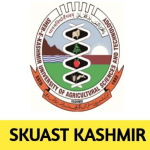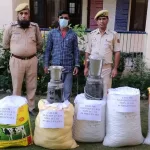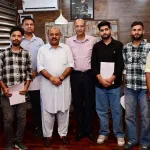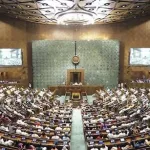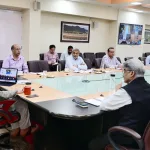In every democratic society, the general public plays a pivotal role in shaping the governance and functioning of a state. They pay taxes, elect governments, follow laws, and contribute to the economy, making them central to the nation’s success. However, despite their immense contribution, the public often finds itself at the receiving end of various issues. Whether it’s a lack of basic facilities, inadequate grievance redressal, or long waits in hospitals and public offices, the general public frequently bears the brunt of systemic inefficiencies.
This article delves into why the general public continues to face hardships despite their essential role in building the state infrastructure, running government affairs, and paying for services through taxes and fees. We will explore the various factors contributing to this disconnect between the public’s contributions and the benefits they receive, examining issues such as inefficient governance, lack of accountability, bureaucratic delays, and an imbalance in priorities.
The public’s contribution: taxes and infrastructure development
The general public plays a significant role in building and maintaining the state’s infrastructure through direct and indirect taxation. Whether its income tax, property tax, or the multitude of indirect taxes on goods and services, the financial burden largely rests on the citizens. Public funds, collected from these taxes, are utilized to build roads, hospitals, schools, and other critical infrastructure. Additionally, they fund government salaries, social welfare schemes, and the functioning of various state institutions.
Despite this substantial contribution, the public often experiences a gap between their expectations and the reality of service delivery. They continue to face numerous challenges, such as poor roads, under-equipped hospitals, and substandard educational institutions, even though they have effectively paid for these services. The mismatch between what the public provides and what they receive is a fundamental issue that highlights the structural problems within the system.
Elected governments and public expectations
The essence of democracy lies in the fact that governments are elected by the people, for the people. The general public participates in the electoral process, hoping that their elected representatives will address their concerns and work towards improving their quality of life. However, once elections are over, the public often finds that their voices are no longer a priority.
While political parties make numerous promises during their campaigns, once in power, they may fail to address the pressing concerns of the electorate. Instead of focusing on public welfare, governments sometimes prioritize other agendas such as political power consolidation, appeasement of certain groups, or personal gains. This leaves the public with unfulfilled promises, poor governance, and, ultimately, no real improvements in their living conditions.
One of the main reasons the public remains on the receiving end is the lack of consistent, focused, and honest leadership committed to delivering on the promises made during elections.
Bureaucratic inefficiencies and delays
One of the most significant challenges that the general public faces is dealing with bureaucratic inefficiencies. Whether it’s accessing healthcare, filing grievances, or seeking government services, the public is often subjected to long queues, endless paperwork, and frustrating delays. Government offices and public institutions are notorious for their slow pace, leading to a loss of time and resources for the general public. Whether it’s applying for a passport, renewing a driving license, or even getting medical attention in a government hospital, people are often forced to wait for hours, if not days, to receive the services they are entitled to.
This inefficiency is a result of a combination of outdated processes, lack of accountability, and, at times, deliberate red tapism. These systems, instead of serving the public efficiently, often function in a way that adds to the burden on citizens. Moreover, the lack of accountability means that no one is held responsible for the delays or poor service, further entrenching the cycle of inefficiency.
Poor grievance redressal mechanism
One of the core functions of any government is to address the grievances of its citizens. Unfortunately, in many cases, grievance redressal mechanisms are either inefficient or nonexistent. From complaints about basic amenities such as water and electricity to more serious issues such as corruption or public service delivery, the public often finds it difficult to get their issues resolved.
This lack of an effective grievance redressal mechanism leaves the public feeling helpless and disillusioned with the system. When their concerns are not addressed, they lose faith in the institutions that are supposed to serve them, creating a disconnect between the government and the public. This further perpetuates the feeling of being on the receiving end, as their problems remain unresolved.
Healthcare: Long queues and inadequate facilities
One of the most glaring examples of the public being on the receiving end is the state of public healthcare. Government hospitals, which are supposed to provide affordable and accessible healthcare to all citizens, are often overcrowded, understaffed, and underfunded. Patients have to wait in long queues to see a doctor, receive medication, or even undergo simple tests.
Despite the fact that the public has already paid for these services through taxes, they are often forced to seek treatment in private hospitals, where costs are significantly higher. This not only adds to the financial burden of the general public but also highlights the inadequacies of the public healthcare system.
Moreover, the lack of basic healthcare facilities in rural areas further exacerbates the problem. Many citizens in remote regions have to travel long distances to access even the most basic medical services, putting their health and well-being at risk.
Corruption and misallocation of resources
Corruption is another significant factor that leaves the public on the receiving end. When public resources are misallocated or siphoned off by corrupt officials, it is the general public that suffers. Funds that are supposed to be used for building infrastructure, improving public services, and providing social welfare are instead diverted into the pockets of a few individuals.
This systemic corruption not only deprives the public of the services they are entitled to but also erodes trust in public institutions. The public sees their hard-earned money being wasted or stolen, leading to frustration and resentment. Corruption, in turn, perpetuates inefficiencies, as there is little incentive for public officials to perform their duties diligently.
Public transport and infrastructure: A daily struggle
Public transport is another area where the general public faces daily hardships. In many cities, public transportation systems are inadequate, overcrowded, and unreliable. Commuters are often forced to endure long waits, cramped conditions, and poorly maintained vehicles.
Road infrastructure, especially in urban areas, is often congested and poorly maintained, leading to traffic jams and accidents. Despite paying taxes for road maintenance and development, the public is left to navigate through potholed roads and inadequate transport systems. The lack of efficient and well-maintained public infrastructure adds to the daily struggles of the common man, making it clear that despite their contributions, the public is still on the receiving end.
Imbalance in government priorities
One of the fundamental reasons the public remains at the receiving end is the imbalance in government priorities. While the government is supposed to work for the people, there is often a disconnect between the issues that matter to the public and those that the government prioritizes. Instead of focusing on providing basic amenities such as clean water, healthcare, education, and efficient public services, governments often divert resources to more politically expedient or high-profile projects that may not directly benefit the average citizen.
This imbalance in priorities leaves the public struggling for access to basic services while resources are channeled into projects that may not have an immediate or direct impact on their daily lives.
Electoral disconnect: Representation but no accountability
While the public elects its representatives through the democratic process, there is often a disconnect between the elected officials and their constituents once they are in power. The lack of accountability and direct engagement with the public means that elected officials may not always act in the best interests of the people they are supposed to serve.
Once in office, some representatives focus more on maintaining power, catering to specific interest groups, or furthering their political careers, rather than addressing the needs of their constituents. This disconnect leaves the public feeling neglected, as their representatives do not always prioritize their concerns.
Conclusion
Despite playing a central role in building and maintaining the state, the general public often finds itself at the receiving end of various inefficiencies, inadequacies, and systemic flaws. Whether it is the lack of basic facilities, poor healthcare, bureaucratic delays, or corruption, the public bears the burden of a system that does not always serve its best interests.
For the public to truly benefit from the system they support, there needs to be a fundamental shift in how governments function. Transparency, accountability, efficient service delivery, and prioritizing public welfare are essential to ensure that the public’s contributions are matched by the benefits they receive. Only then can the gap between what the public provides and what they get in return be bridged, creating a system that truly works for the people, rather than leaving them perpetually on the receiving end.
(The author is a Social Activist and National TV debater. The Views expressed are his own and can be reached on @[email protected])



